Sourcing good quality flour can be an arduous task. Furthermore, it’s difficult to know what’s been added and taken out of any store-bought flour you might buy. Home milling flour can offer numerous virtues. From grain to flour, you can now ensure full traceability. The wholegrain flour produced unlocks instant freshness. Home millers can now eradicate bad and unhealthy practices, generally suited for mass production. The result is fuller flavour and a much higher nutritional content.
With an array of home mills now available, it’s easy to become a home miller.
Advantages
There’s a range of reasons why you’d want to mill at home.
- Full traceability.
- Unlock fresh flour when you like.
- Avoid chemical additives.
- It’s fun!
- Retain greater nutritional grain content.
Mass produced flour
To help understand the benefits of home milling, it’s handy to know the techniques used in mass produced flour. Over years, common flour has undergone a number of processes and refinements. These efforts tend to maximise profit at a cost to nutrition and taste.
- Husk and bran are usually removed (the hard outer-casing).
- Chemical bleaching is applied to make the flour more artificially white.
- Removal of key biological parts to increase shelf-life.
By removing key nutritious parts, flour shelf life can be prolonged. This allows store flour to sit on the supermarket shelf longer. It helps with a long sell by date and to reduce large scale wastage.
Mass produced wheat vs organic wheat
Chemical additives are often applied to fortify wheat crops and improve overall yield. By using organic wheat, we can reduce our exposure to these unnatural additives.
Why are pesticides used for flour?
Pesticides are used for a range of reasons in modern wheat farming. As a result, toxic residues can be found in common flour. Regular exposure to these chemicals can prove harmful.
There are 4 main types:
- Insecticides – a chemical used to inhibit, kill and control harmful insects.
- Herbicides – a chemical used to control invasive weeds.
- Rodenticides – a toxic agent to kill damaging rodents.
- Fungicides – a chemical used to avoid the growth of fungi.
Chemical additives are often applied to fortify wheat crops and improve overall yield.
Increasingly, glyphosate is applied to shorten the life of wheat crops just prior to harvesting. The application kills and dries out the wheat allowing farmers to harvest sooner.
Pesticides and chemical additives can be used in different stages of flour production:
Pre harvest
Storage
Flour Additives
Chemical flour bleaching
In 1906 flour producers started to bleach flour. This process whitens the flour, produces a finer grain and promotes a softer texture.
So how do you mill flour at home?
If you’re just starting out, you just need a grain mill and some quality grain.
Here in the UK, there’s a wide source of farmers who are only too willing to now supply grain. Gilchesters, based in Northumberland, are one such outlet who grow high quality organic wheat grain, rye and spelt. The hard work they apply rearing heritage grains are commendable.
Choosing the right grain mill
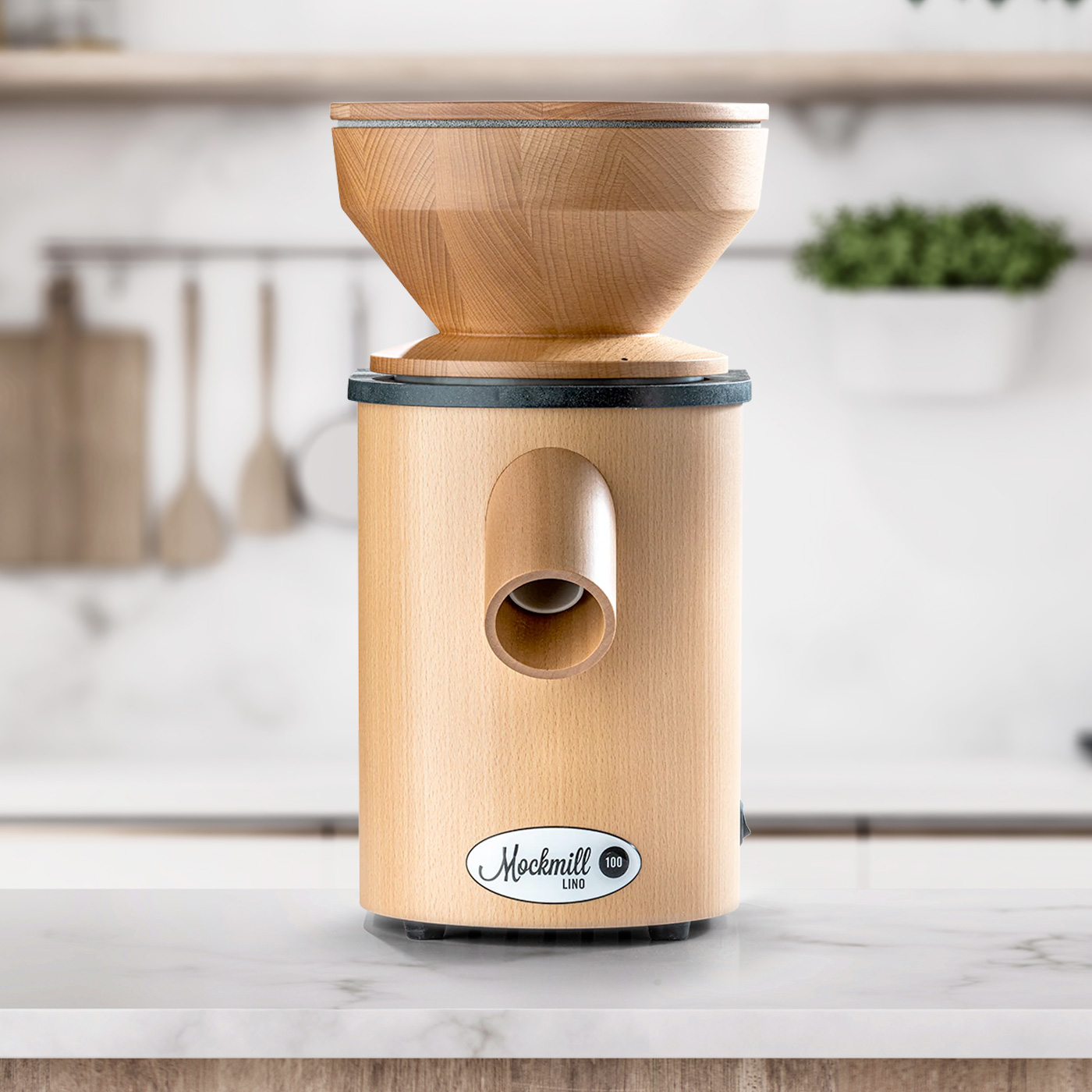
Home mills tend to be powered by electricity. Hand mills are available, but the manual rotary action needed means some effort by the user. Additionally, motor and mill stone sizes vary along with the mill output ability. Generally, you’ll find electric mills can output either 100 – 200 grams per minute. The higher the flour output, the bigger the mill premium.
Meet some of the home mill makers
Mockmill
Komo
Waldner
Which grain?
In the UK, we have an increasing source of organic wheat suppliers.
Wheat is an obvious choice to mill flour at home. The wholegrain all-rounder will provide a familiar flour taste to most. The price of wheat grain is reasonable, and you can expect to pick up 3kg for roughly £4.
Other grains, like Spelt and Rye grains offer a nuttier flavour and dimension to common wheat. These grains are good for building depth when mixed with a common wheat. The varieties are a little more expensive than standard wheat since they do not have the same level of demand.
- Wheat
- Spelt
- Rye
- Emmer
- Einkorn
References
https://www.afbini.gov.uk/publications/pesticide-usage-report-arable-crops-2020
https://www.sciencedirect.com/science/article/pii/B9780124017160000209
Sourdough Hydration Calculator Buy a Sourdough Starter Sourdough Recipes
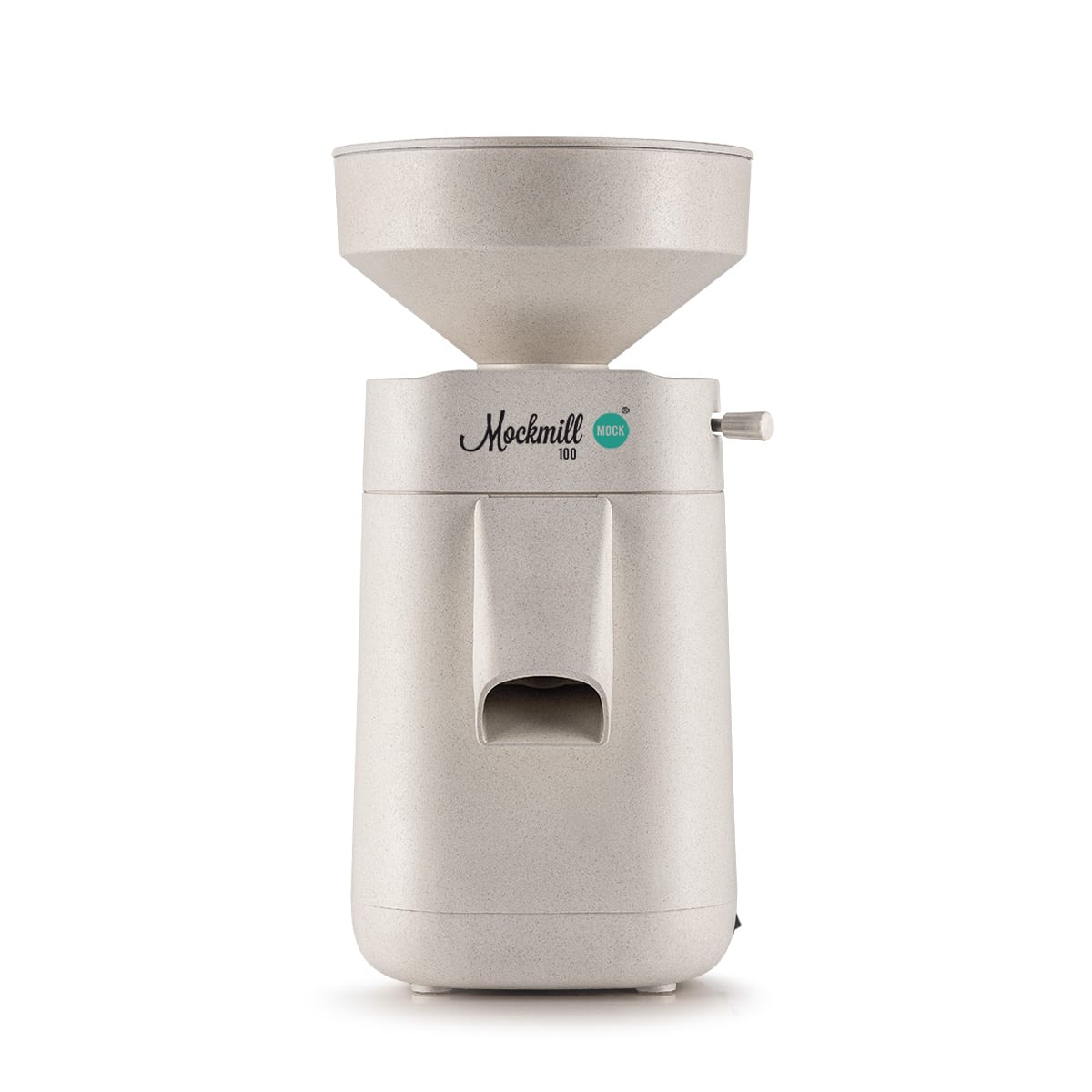
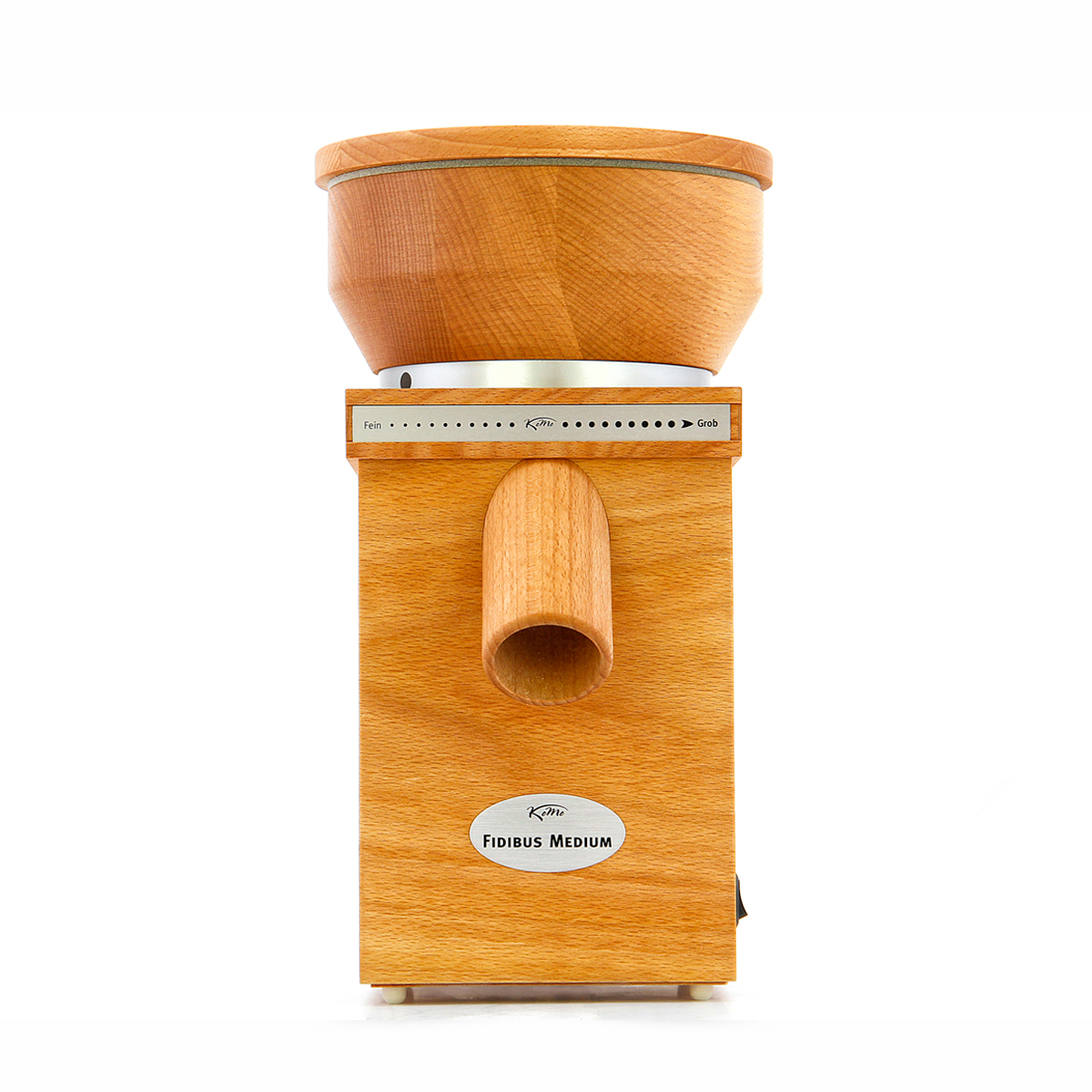
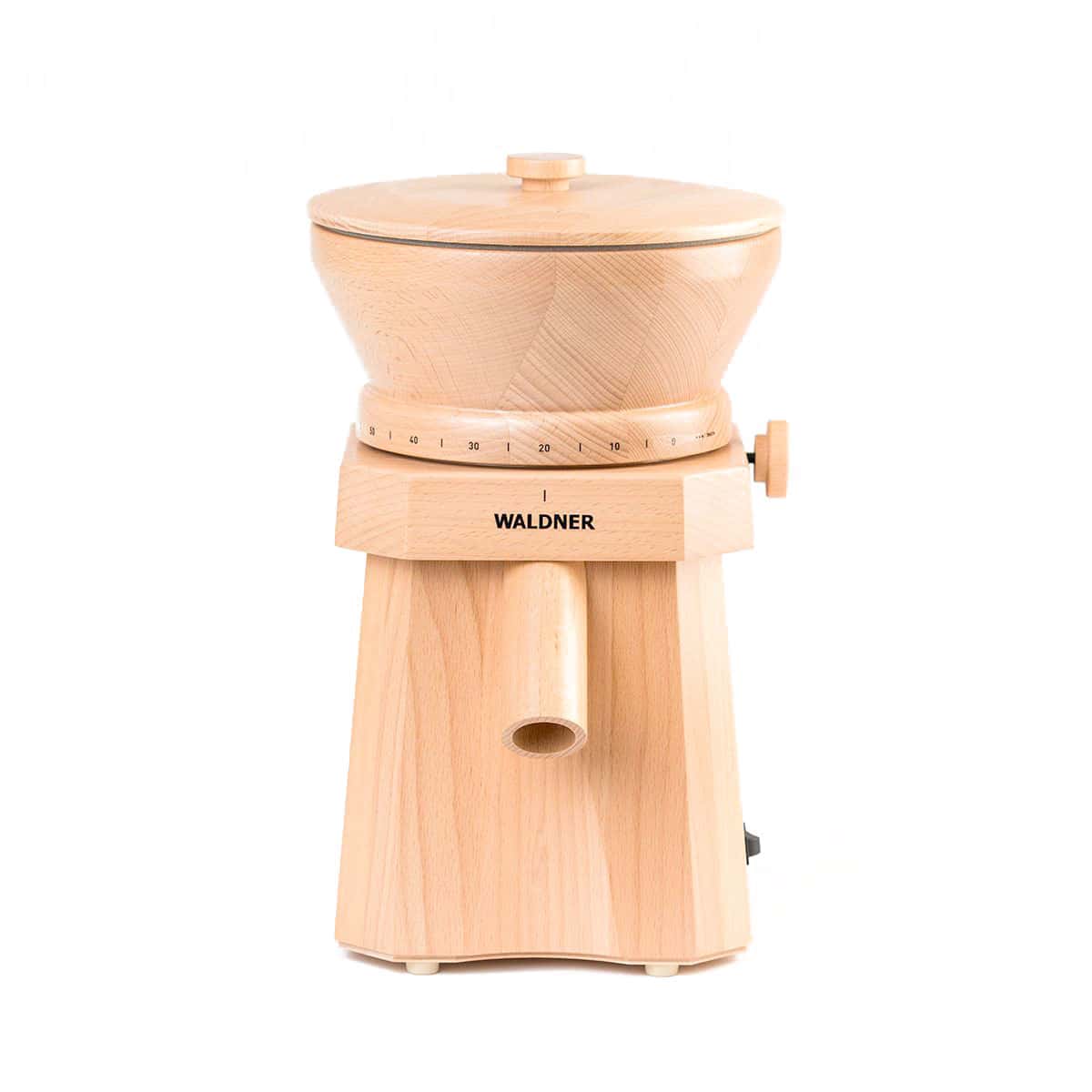
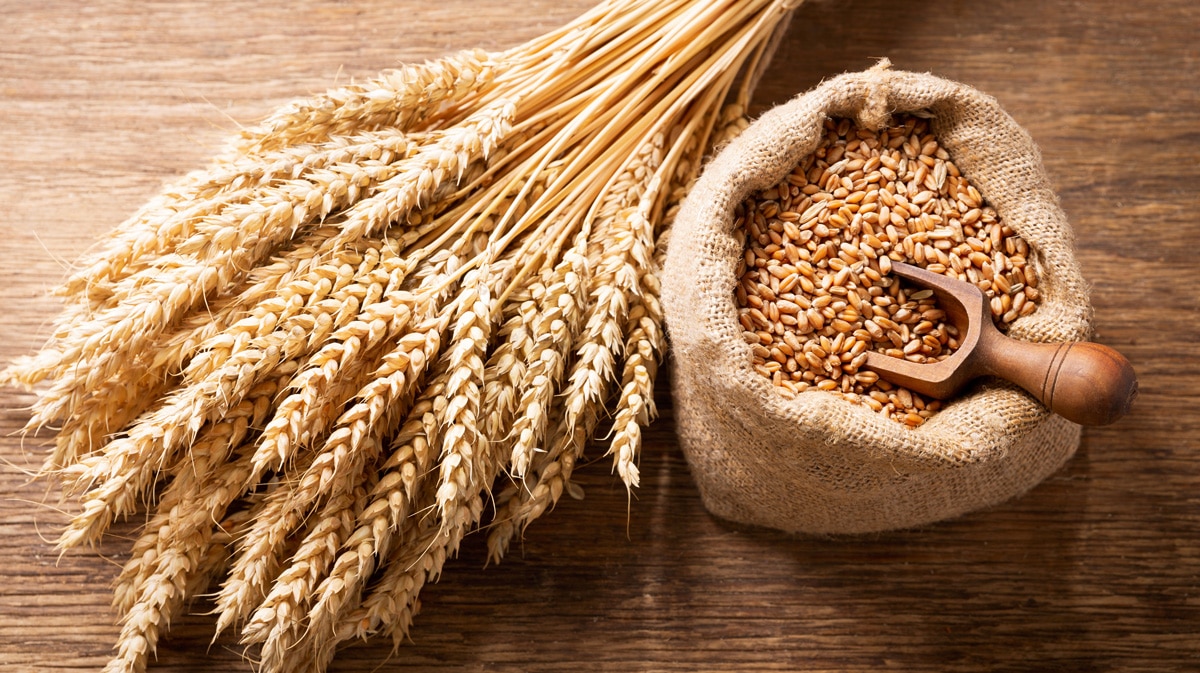
Leave a Reply